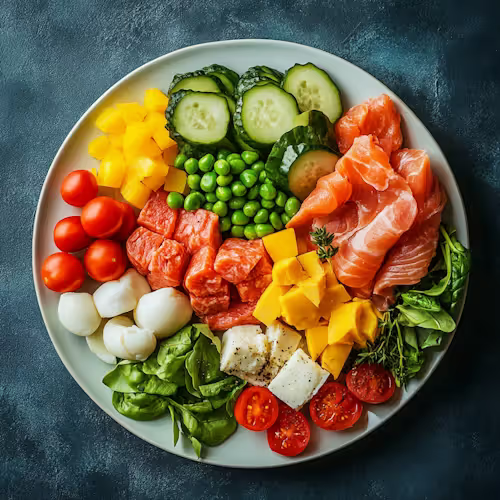Importance of Balanced Diet in Daily Life
What is a Balanced Diet?
A balanced diet is the practice of eating different food groups in the right proportion so the body gets all the nutrients it needs. It does not mean eating less, but eating smart. A proper plate usually includes:
Carbohydrates from rice, bread, and grains to provide energy.
Proteins from meat, eggs, lentils, or beans to repair tissues and support growth.
Healthy fats from nuts, seeds, fish, and olive oil that protect organs and help cell function.
Vitamins and minerals from fruits and vegetables that strengthen immunity and body processes.
Water that keeps the body hydrated and helps digestion.
When these groups are eaten in the right balance, the body performs at its best.
Benefits of a Balanced Diet
1. Provides Energy for Daily Life
Food is the body’s fuel. Carbohydrates and fats give immediate energy, while proteins maintain long-term stamina. People who eat a balanced diet usually feel less tired and more productive in their daily activities.
2 . Strengthens Immunity
A diet rich in vitamin C, vitamin D, zinc, and iron helps the body fight infections. Fruits like oranges, vegetables like spinach, and proteins like fish or chicken all play a big role in keeping the immune system active.
3 . Improves Mental Well-being
Nutrition is directly connected to brain health. Omega-3 fatty acids from fish and walnuts improve memory and concentration. B vitamins from whole grains and eggs reduce stress and help the brain function smoothly.
4 . Prevents Common Lifestyle Diseases
Many health problems today, such as diabetes, obesity, and high blood pressure, are linked to poor eating habits. A balanced diet controls sugar intake, maintains healthy weight, and supports proper heart function. This prevention is much easier than treatment.
5 . Supports Growth and Development
Children and young adults need proper nutrition for healthy growth. Calcium from milk and leafy vegetables strengthens bones, while proteins support muscle development. Missing these nutrients at a young age can lead to long-term health issues.
Simple Tips for Eating Balanced Meals
Fill half your plate with fruits and vegetables at every meal.
Choose whole grains like brown rice or oats instead of refined flour products.
Drink 6–8 glasses of water daily to stay hydrated.
Limit processed foods, fried snacks, and sugary drinks.
Use healthy oils in small amounts instead of heavy fried food.
Try to eat at fixed times instead of skipping meals.
Daily Life Examples
Breakfast: oats with milk and fruits, or eggs with whole grain bread.
Lunch: rice with grilled chicken/fish and salad.
Dinner: lentil soup with vegetables and chapati.
Snacks: nuts, yogurt, or fresh fruit instead of chips or sweets.
Balanced meals like these keep energy levels steady and prevent overeating.
Final Thought
Eating balanced meals daily is not about strict dieting but about smart choices. By focusing on variety, moderation, and natural foods, anyone can build stronger health and prevent future problems.



